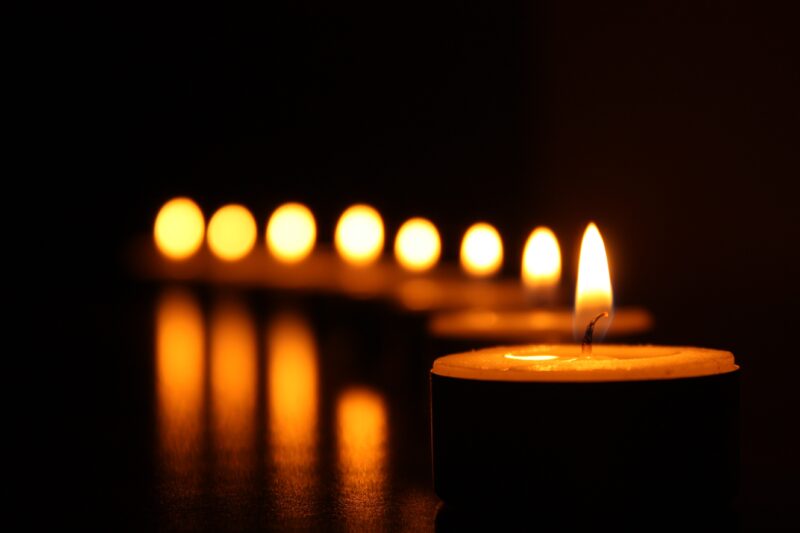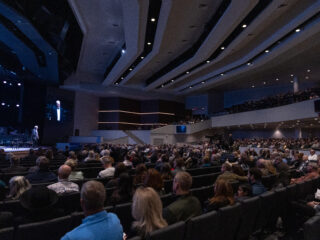We’ve all had that nerve-fraying moment when we flip on a light switch and the bulb blows out in this bright flash that blinds you before darkness covers the room. Have you ever noticed what you said? If you’re like me, you started yelling for someone to bring you a light bulb because the light bulb had blown out.
Notice what you don’t say. You don’t say, “The darkness killed another light bulb.” No, the light bulb blew out. The darkness didn’t kill it. The light failed.
I’ve been thinking about this story a lot lately. Every time I turn on the television, there is some expert telling me how “dark” these days are. We are politically divided like never before in the history of our nation. (Well, the Civil War comes to mind, but no one seems to remember that part of our history). We are failing to address the racial, economic, housing, healthcare — fill in your own — crisis.
These are indeed dark days, but not because the darkness has won. The light has failed. Here’s the hard truth. If it’s dark in our nation, it’s because those who are supposed to be light have failed to be that light. Darkness, no matter how black and thick, doesn’t have the power to put out the light from a single match. Have you ever been in a dark room and lit a match? The whole room lights up. One little match pushes all of the darkness away.
I think this is what Jesus was talking about in Matthew 5 when He called His followers the “light of the world.” What Jesus was calling His followers to do was impossible. How can a rag-tag group made up of fishermen, tax collectors, and women convince the entire world — every race, tribe, and ethnic group — Jesus is the Christ? You can almost imagine the looks on the disciples’ faces when they were gathered in the upper room and Jesus tells them they will be His witnesses to the ends of the earth. Each one of them was thinking the same thing: we’re going to need more people.
It’s the same thing we think in our churches every time we gather to worship. Yes, we agree the world needs the gospel, but if we’re going to reach the world, we’re going to need more people — a lot more people.
Maybe not.
Maybe what we need is a few brighter lights, people who can push the darkness back wherever they work, attend school, or the neighborhoods they live in. Christ-followers who live with a grace-filled hospitality toward their neighbors. Christ-followers who offer grace-filled friendships to anyone they meet. People who don’t spend time cursing the night but focus on turning on another light.
That is, after all, the way it happens. That’s the way it’s always happened. One person tells another person. One person brings another person. Before long, an entire neighborhood is reached. After a few more months of one person reaching another person, you can reach an entire town. The mathematical progression is stunningly simple. If each Christ-follower brings a friend to follow Christ, the whole world can be reached in a matter of a few years. Think about it: in about thirty years’ time, the early church had reached most of the Roman Empire. So much so, the empire was beginning to see the early church as a threat to their power.
Everyone is complaining how dark the times are now. Every politician is complaining about how divided our nation is. One tribe blames another tribe who blames another tribe. Everyone is demanding justice. Everyone is looking for equality. Conversations are angry. Friendships are broken. The pandemic, vaccines, quarantine, to wear a mask or not, job losses — it’s enough to bring the clouds into anyone’s days. Add to that the usual stresses of life, and these times are dark indeed.
But the darkness isn’t winning. The light is failing. Most people don’t think their little light will make any difference. The darkness is too great. In truth, the smallest lights make the greatest differences. In fact, the blacker the darkness the greater the impact of the light.
But you do have to let your light shine. No matter how small your light and no matter how thick the night. The darkness can’t overcome the light.
So, if it’s dark — and it is — it’s not the victory of the darkness. It’s a failure of the light.









